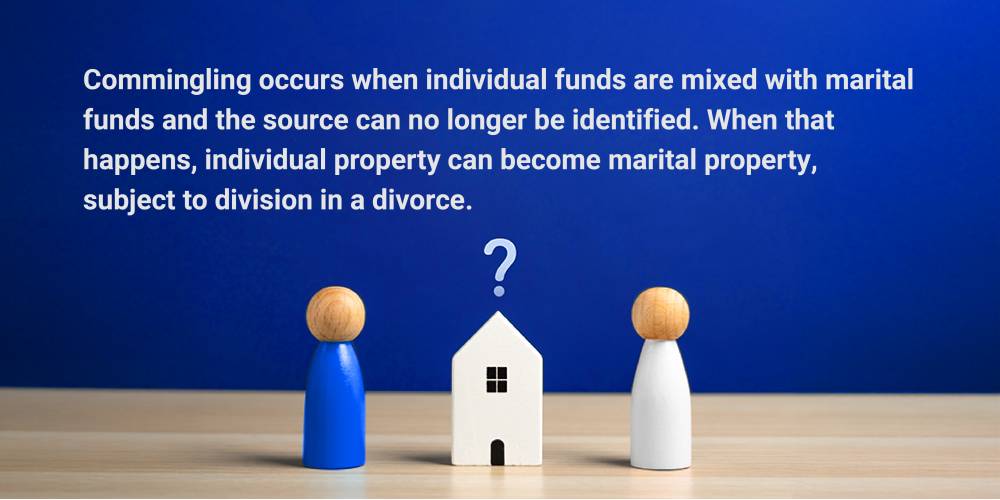What Counts as Marital vs. Individual Property in a Wisconsin Divorce?
 Property division is one of the most complex and significant parts of the divorce process. Like all states, Wisconsin family courts characterize property, including debt, as marital or non-marital, also known as individual. Understanding whether certain assets would be considered marital or individual as you enter divorce proceedings is part of ensuring that your property is divided fairly and that you have the chance to fight for what is yours. A New Berlin, WI divorce attorney can explain how these rules apply to your specific assets and debts and help you build a practical plan.
Property division is one of the most complex and significant parts of the divorce process. Like all states, Wisconsin family courts characterize property, including debt, as marital or non-marital, also known as individual. Understanding whether certain assets would be considered marital or individual as you enter divorce proceedings is part of ensuring that your property is divided fairly and that you have the chance to fight for what is yours. A New Berlin, WI divorce attorney can explain how these rules apply to your specific assets and debts and help you build a practical plan.
How Does Wisconsin Law Divide Property During Divorce?
Under Wis. Stat. § 767.61, Wisconsin courts begin with a presumption that an equal division is fair between the spouses. That starting point can change after the judge weighs specific factors, such as how long the couple was married and what each spouse brought into the marriage. They consider your age and health, earning capacity, contributions to the marriage, and any valid marital property agreement. The court may also consider the tax impact of different awards and whether it is practical to keep assets like a family home or a closely held business intact. Ultimately, their goal is to reach a resolution that is fair under your circumstances.
What Is Considered Marital Property in a Wisconsin Divorce?
Marital property is generally anything you and your spouse acquired during your marriage. Common examples include income, real estate, vehicles, furniture, bank accounts funded with marital earnings, and retirement benefits earned during the marriage. Under Wisconsin’s Marital Property Act, Wis. Stat. § 766.31, property acquired during the marriage is presumed marital unless an exception applies. The most common among those exceptions are gifts and inheritance.
What Is Considered Non-Marital Property in a Wisconsin Divorce?
Wisconsin recognizes individual property that is excluded from the marital estate. The most common examples include:
-
Gifts to one spouse alone: If a friend or relative gives only you a gift, it is generally your individual property.
-
Inheritances to one spouse: Property you receive through a will or trust in your name only typically belongs solely to you.
-
Property owned before marriage and kept separate: Assets you had before the wedding can remain individual if you maintain clear separation and records showing the source.
-
Property classified as individual by agreement: A valid prenuptial or postnuptial agreement can designate certain assets as individual property under Wis. Stat. § 766.58.
-
Assets bought with individual, traceable funds: If you purchase an item using only individual money and can trace the source, it usually keeps its non-marital status.
-
Passive increases on individual property: Market growth or appreciation on non-marital assets generally remains individual, but income such as interest, dividends, or rent is usually considered marital unless otherwise addressed in a premarital or post-marital agreement. You will also need to keep records so the source and growth remain traceable.
Documentation matters. Bank statements, gift letters, estate paperwork, and account histories help prove an asset is individual and protect it from being treated as marital.
Can Non-Marital Property Ever Become Marital Property in Wisconsin?
Individual property can become marital through commingling or by agreement. Under Wis. Stat. § 766.63, commingling occurs when individual funds are mixed with marital funds to a point that the source can no longer be identified. If tracing records are missing or unclear, the court may treat the mixed account or asset as marital property.
For example, if you deposit an inheritance into a joint checking account and then you both use that account for everyday expenses and savings over many years, it may be difficult to trace what remains of the inheritance. By contrast, if you keep the inheritance in an account titled individually and preserve statements showing deposits and gains, it is more likely to remain separate.

How Are Debts Divided in a Wisconsin Divorce?
Debts are property as well. Under Wis. Stat. § 766.55, a debt taken on for the marriage or family can be collected from marital property and from the spouse who incurred it. A debt that clearly benefits only one spouse is usually collected only from that spouse.
Keep in mind that creditors generally do not follow divorce agreements. Therefore, if your spouse is ordered to pay a debt that is also in your name, you could still be responsible for it if your spouse does not pay. However, with the help of your attorney, you can have the court enforce the divorce judgment and hold your spouse accountable for missing payments.
What Are the Most Complex Assets to Divide During Divorce in Wisconsin?
Under Wisconsin’s property-division law, some assets are harder to classify and split because their value changes over time or they follow special rules. Examples include:
-
Retirement accounts and pensions: These are divided based on marital contributions, and many plans require a legal document called a Qualified Domestic Relations Order (QDRO) to complete the transfer.
-
Small businesses and professional practices: Businesses must be valued by an expert, and the court can award the business to one spouse with a buyout.
-
Commingled bank or brokerage accounts: Mixed accounts can be hard to trace, and unclear records may lead the court to treat the entire balance as marital.
-
Digital assets and cryptocurrency: These require wallet access and transaction records, and often include complex processing for assigning value to them.
-
Collectibles and unique items: Your unusual or specialized high-value assets need qualified appraisals.
Contact a Waukesha County, WI Divorce Attorney Today
You deserve counsel that knows this community and understands how property is divided in divorces here. At Bucher, Wolff & Sonderhouse, LLP, our team lives and works in southeastern Wisconsin. Attorney Peter Wolff was raised in Brookfield and served the City of Brookfield Police Department for ten years before entering private practice. Attorney Ronald Sonderhouse has called Waukesha County home for more than two decades. Because we are local, we understand the courts, judges, procedures, and even many of the opposing attorneys here. That familiarity helps us move your case forward with focus and efficiency.
If you want clear guidance on classifying assets, valuing complex property, and protecting your financial future, contact our New Berlin, WI divorce lawyers for a free consultation today. Just call 262-232-6699 to get started. We are available 24/7.









 262-232-6699
262-232-6699





